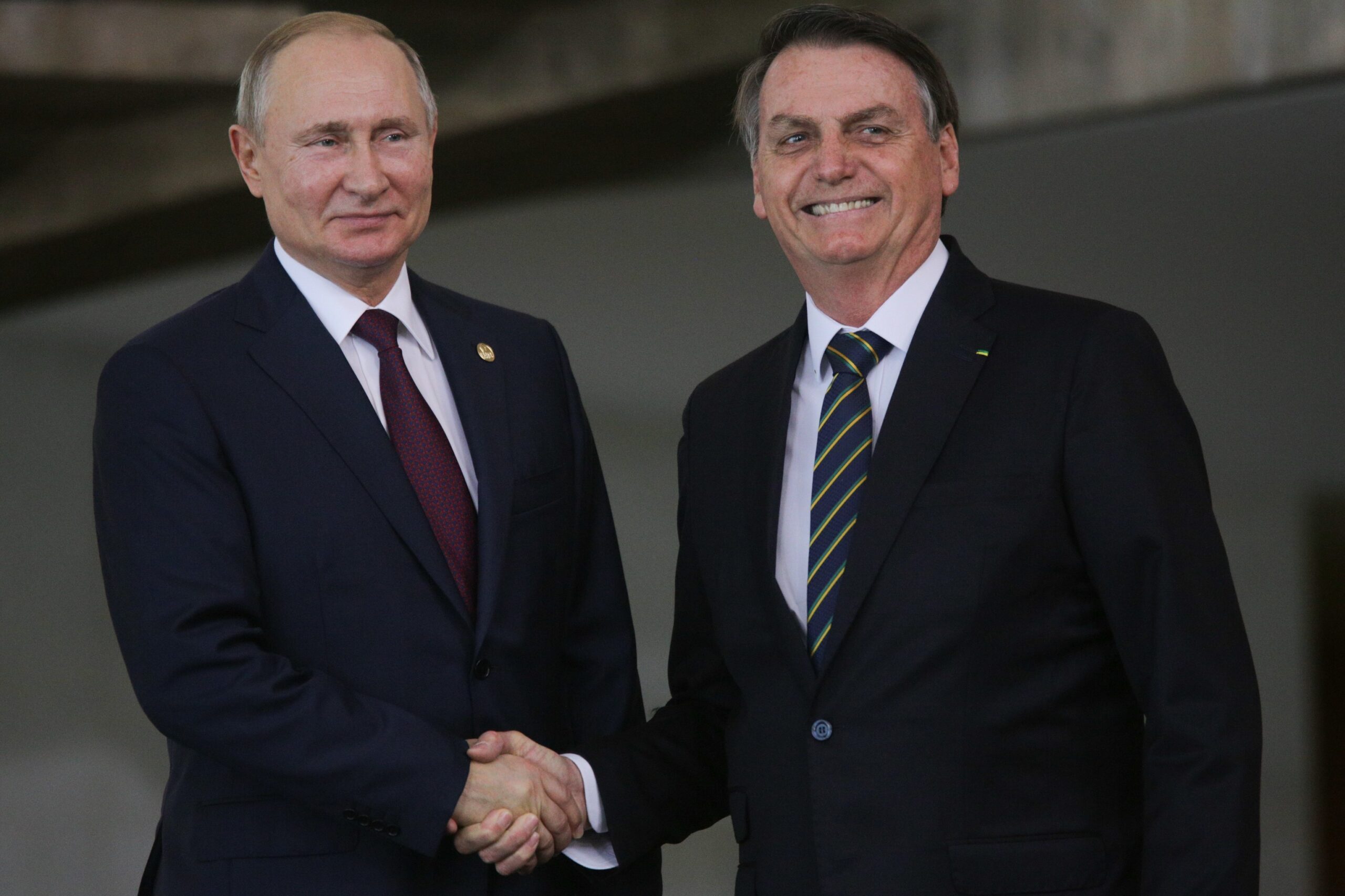Brazil, Latin America’s largest economy, has boosted its imports from Russia, with which it maintains strong trade despite the war in Ukraine and at a time when the West is trying to isolate Vladimir Putin’s government.
Beyond the enormous logistical difficulties, the bilateral trade flow has barely suffered since Russian troops invaded Ukraine on February 24, according to data from the Brazilian Ministry of Economy. Rather the opposite.
In a growing phase since 2021, Russian imports totaled 3,237 million dollars between March and June, more than double the value registered in the same months of last year (1,572 million dollars).
Brazilian exports fell just 10% in the same comparison (521 against 577 million dollars), amid the siege of sanctions against Russia.
This week, the Government of Jair Bolsonaro, which defends a “neutral” position in the face of the conflict, advanced that it has “almost closed” an agreement to buy Russian diesel “as much as possible.”
“We are looking for safe and very reliable diesel suppliers, and Russia is one of them,” said Brazilian Foreign Minister Carlos França at the UN headquarters, distancing himself from the United States and the European Union, which have imposed gradual embargoes on oil. Russian.
Experts in international trade consulted by Efe reject that these deals are a gesture of “political support” for Putin.
“Brazil, deep down, pursues its interests,” Victor do Prado, senior member of the Nucleus of International Trade and Global Economy of the Brazilian Center for International Relations (Cebri), told Efe.
Although Professor Edmar Almeida, from the Energy Institute of the Pontifical Catholic University of Rio de Janeiro (PUC-Rio), does appreciate “a diplomatic effort” by the Bolsonaro Administration so that “Russia sells its products to Brazilian companies.”
The star product of Russian imports is chemical fertilizers, key to the powerful Brazilian agricultural industry. In the first half of this year they accounted for 77% of purchases.
Russia is the main supplier of fertilizers to Brazil. A quarter of what it consumes comes from there.
For Rodrigo Cezar, professor at the International Relations school of the Getulio Vargas Foundation (FGV), what Brazil has done is “anticipate exports in fear that Russia will not be able to continue supplying.”
This increase in demand, together with logistical problems, has caused the price to skyrocket, affecting the trade balance, according to Cezar.
Likewise, Prado, who held management positions in the World Trade Organization (WTO), recalls that this growth comes from before the war, coinciding with the expansion of the Brazilian countryside, which also increased purchases of fertilizers from other producers, such as Morocco. .
On the export side, Brazil sold mainly soybeans (37% of the total) and sugar (21%) to Russia in the first half of the year, without sales collapsing due to the war.
Keeping the flow is not being easy. The sanctions have made international payments to Russian banks extremely difficult.
One of the solutions has been to carry them out through the subsidiaries that “many Russian companies” have in countries such as “Kazakhstan, Turkey, China and India,” according to Gilmar Menezes, executive director of the Brazil-Russia Chamber of Commerce, Industry and Tourism.
In addition, unlike the powers of the West, the Bolsonaro Executive has not adopted -nor supported- sanctions against Russia, its partner in the BRICS group (Brazil, Russia, India, China and South Africa).
“Brazil has no tradition of imposing sanctions. If there is a business opportunity, it does so,” says Cezar.
Within this apparent bilateral fluidity, Brazil, which occupies a temporary seat on the UN Security Council, expects to start receiving Russian diesel in up to “60 days,” according to Bolsonaro, who stressed the need to buy from those who “sell cheaper”.
“Russia continues to do business with the whole world, it seems that the economic sanctions did not work,” said the far-right leader, who in February, on the eve of the war, visited Putin in Moscow, with whom he also spoke by phone on March 27. June.
Although this latest movement in relation to diesel has surprised some analysts due to the great difficulty that its transfer from Russia will entail.
Brazil, which imports almost a third of the diesel it consumes, has reserves for 50 days, according to official calculations that are added to the alerts due to the risk of shortages in the second semester, when the country will hold elections, in which Bolsonaro will seek to renew his mandate. .
Conforms to The Trust Project criteria
















